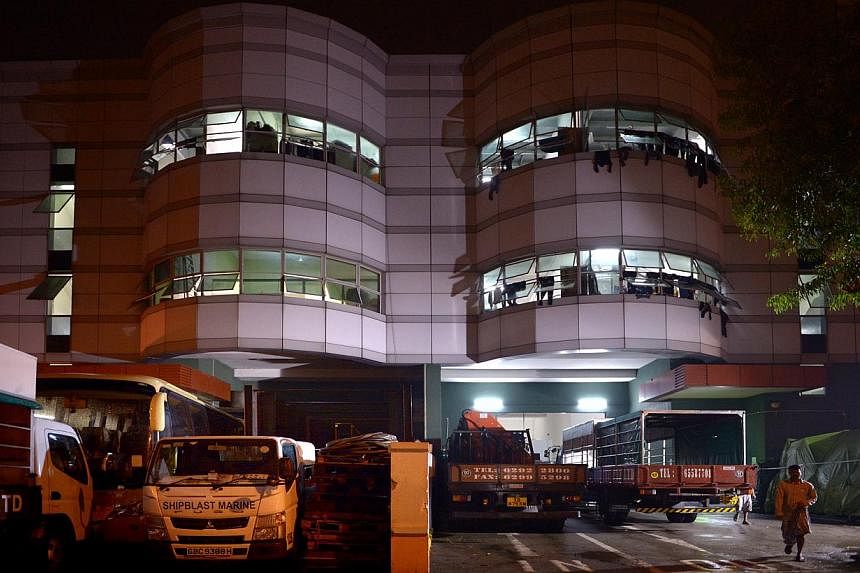In a bid to move workers from temporary housing to proper dormitories, the Government has stopped the building of temporary dormitories in a dozen industrial estates.
Workers from the marine and process sectors, which include the chemicals and pharmaceutical sectors, will also not be allowed to live in public housing from next year.
These moves come as the Government ramps up the building of purpose-built dorms with proper facilities over the next two years.
Last week, in a circular to building owners and developers, the Urban Redevelopment Authority (URA) said it will no longer allow new temporary dorms to be built in 12 industrial estates.
This was because several temporary dorms within some industrial estates have "caused a significant strain on existing infrastructure". Limiting the number of dorms will prevent the overloading of infrastructure such as road and sewerage systems, said URA.
Factory-converted dorms in areas such as Changi, Jurong and Tuas have been increasing to meet rising demand from employers looking to house their foreign workers.
There are about 700 temporary dorms housing some 100,000 foreign workers - a quarter of the 385,000 low-skilled foreign workers who need accommodation here.
But such dorms have drawn criticism from migrant workers' groups for their cramped and dirty conditions.
Another 200,000 foreign workers live in purpose-built dormitories.
The rest live in other places such as shophouses and temporary quarters at construction sites.
Nine new purpose-built dorms, with facilities such as foodcourts and basketball courts, will be constructed over the next two years.
They will add about 100,000 beds.
Separately, the Manpower Ministry (MOM) and Housing Board also told employers of workers in the marine and process sectors and flat owners housing them that they will no longer be allowed to house these workers in HDB flats from May 1 next year.
"This change is in line with the longer-term plan to house marine and process non-Malaysian work permit holders in purpose-built dormitories and approved workers' quarters with facilities which better cater to the workers' needs," said MOM and HDB in a letter circulated earlier this month.
There are no official figures on how many workers in these sectors will be affected, although industry estimates put the number at about 4,000.
Industry players said the biggest impact from these moves will be on the bottom line.
It costs about $250 a month to house a worker in a factory-converted dorm, less than the $300 for purpose-built dorms.
"Some purpose-built dorms are far from worksites and cost more," said Dr Ho Nyok Yong, president of the Singapore Contractors Association.
"Operating costs will go up for employers."

